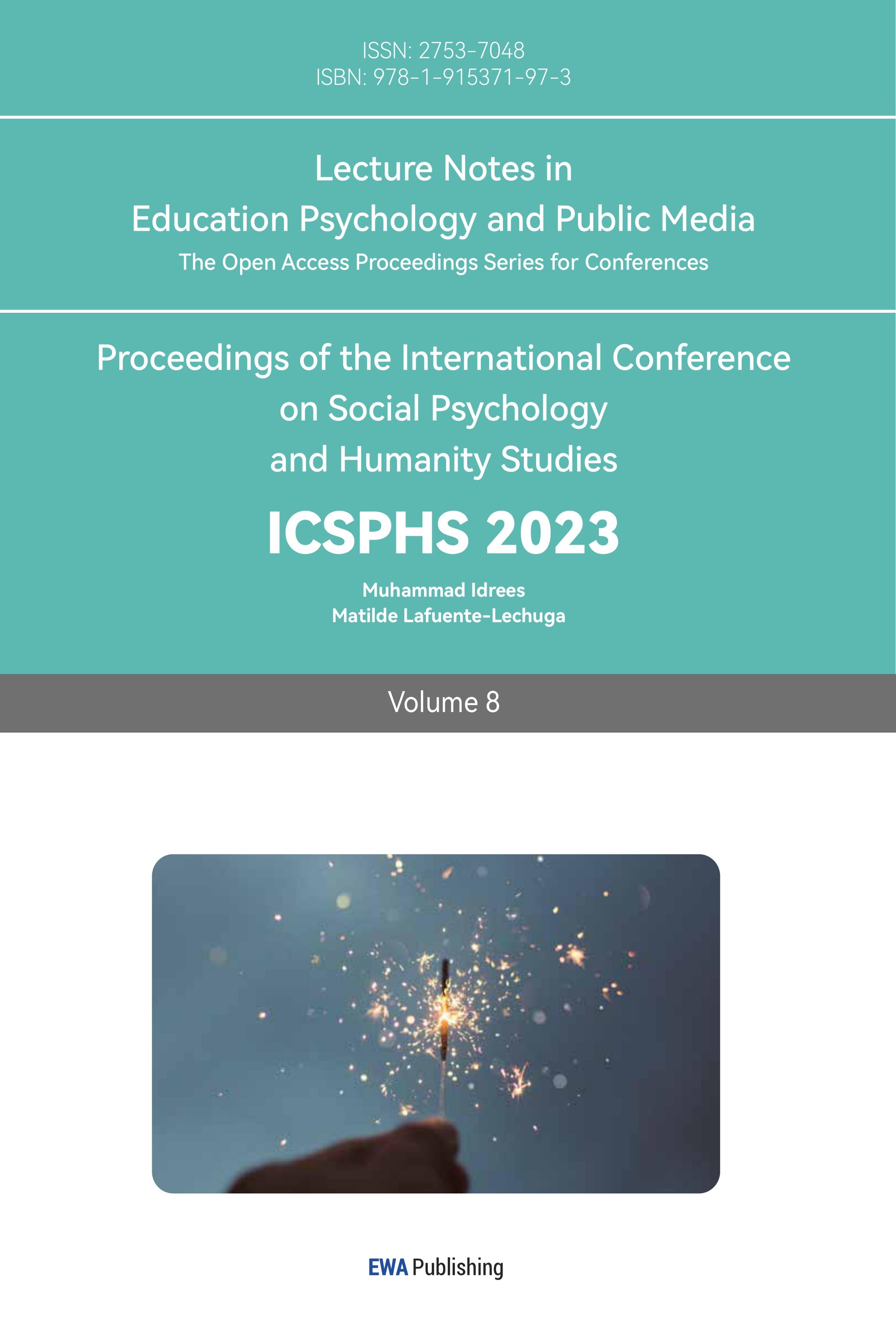References
[1]. The Constitution of Japan. (1946). Article 96. https://japan.kantei.go.jp/constitution_and_government_of_japan/constitution_e.html
[2]. Stockwin, A; & Ampiah, K. (2017). Rethinking Japan: Revising and Reinterpreting the 1947 Constitution (pp.117-136). Lexington Books. ISBN:978-1-4985-3793-3
[3]. Council on Foreign Relations. (2021). The Politics of Revision. https://www.cfr.org/japan-constitution/politics-of-revision
[4]. Council on Foreign Relations. (2021). Media Polling Since 2000. Public Attitudes on Revision. https://www.cfr.org/japan-constitution/public-attitudes-on-revision
[5]. Berger, T. (1993). From Sword to Chrysanthemum: Japan's Culture of Anti-militarism. International Security, 17(4), 135-136. doi:10.2307/2539024
[6]. Council on Foreign Relations. (2017). A Korean View: Japan’s Constitutional Revision Debate. https://www.cfr.org/blog/korean-view-japans-constitutional-revision-debate
[7]. The Constitution of Japan. (1946). Article 9. https://japan.kantei.go.jp/constitution_and_government_of_japan/constitution_e.html
[8]. Umeda, S. (2015). Japan: Interpretations of Article 9 of the Constitution. Library of Congress. https://www.loc.gov/law/help/japan-constitution/interpretations-article9.php
[9]. Maizland, L., & Xu, B. (2019). The U.S.-Japan Security Alliance. Council on Foreign Relations. https://www.cfr.org/backgrounder/us-japan-security-alliance
[10]. Ministry of Foreign Affairs of Japan. (2005). Japan's Contribution to UN Peacekeeping Operations. https://www.mofa.go.jp/policy/un/pko/pamph2005.html
[11]. Itoh, M. (2001). JAPANESE CONSTITUTIONAL REVISION: A Neo-liberal Proposal for Article 9 in Comparative Perspective. Asian Survey, 41(2), 310-327. doi:10.1525/as.2001.41.2.310
[12]. Constitution of the Italian Republic. (1946). Article 11. https://www.senato.it/documenti/repository/istituzione/costituzione_inglese.pdf
Cite this article
Li,Y. (2023). Research on the Current Status of the Revision of Japanese Constitution Article 9. Lecture Notes in Education Psychology and Public Media,8,170-175.
Data availability
The datasets used and/or analyzed during the current study will be available from the authors upon reasonable request.
Disclaimer/Publisher's Note
The statements, opinions and data contained in all publications are solely those of the individual author(s) and contributor(s) and not of EWA Publishing and/or the editor(s). EWA Publishing and/or the editor(s) disclaim responsibility for any injury to people or property resulting from any ideas, methods, instructions or products referred to in the content.
About volume
Volume title: Proceedings of the International Conference on Social Psychology and Humanity Studies
© 2024 by the author(s). Licensee EWA Publishing, Oxford, UK. This article is an open access article distributed under the terms and
conditions of the Creative Commons Attribution (CC BY) license. Authors who
publish this series agree to the following terms:
1. Authors retain copyright and grant the series right of first publication with the work simultaneously licensed under a Creative Commons
Attribution License that allows others to share the work with an acknowledgment of the work's authorship and initial publication in this
series.
2. Authors are able to enter into separate, additional contractual arrangements for the non-exclusive distribution of the series's published
version of the work (e.g., post it to an institutional repository or publish it in a book), with an acknowledgment of its initial
publication in this series.
3. Authors are permitted and encouraged to post their work online (e.g., in institutional repositories or on their website) prior to and
during the submission process, as it can lead to productive exchanges, as well as earlier and greater citation of published work (See
Open access policy for details).
References
[1]. The Constitution of Japan. (1946). Article 96. https://japan.kantei.go.jp/constitution_and_government_of_japan/constitution_e.html
[2]. Stockwin, A; & Ampiah, K. (2017). Rethinking Japan: Revising and Reinterpreting the 1947 Constitution (pp.117-136). Lexington Books. ISBN:978-1-4985-3793-3
[3]. Council on Foreign Relations. (2021). The Politics of Revision. https://www.cfr.org/japan-constitution/politics-of-revision
[4]. Council on Foreign Relations. (2021). Media Polling Since 2000. Public Attitudes on Revision. https://www.cfr.org/japan-constitution/public-attitudes-on-revision
[5]. Berger, T. (1993). From Sword to Chrysanthemum: Japan's Culture of Anti-militarism. International Security, 17(4), 135-136. doi:10.2307/2539024
[6]. Council on Foreign Relations. (2017). A Korean View: Japan’s Constitutional Revision Debate. https://www.cfr.org/blog/korean-view-japans-constitutional-revision-debate
[7]. The Constitution of Japan. (1946). Article 9. https://japan.kantei.go.jp/constitution_and_government_of_japan/constitution_e.html
[8]. Umeda, S. (2015). Japan: Interpretations of Article 9 of the Constitution. Library of Congress. https://www.loc.gov/law/help/japan-constitution/interpretations-article9.php
[9]. Maizland, L., & Xu, B. (2019). The U.S.-Japan Security Alliance. Council on Foreign Relations. https://www.cfr.org/backgrounder/us-japan-security-alliance
[10]. Ministry of Foreign Affairs of Japan. (2005). Japan's Contribution to UN Peacekeeping Operations. https://www.mofa.go.jp/policy/un/pko/pamph2005.html
[11]. Itoh, M. (2001). JAPANESE CONSTITUTIONAL REVISION: A Neo-liberal Proposal for Article 9 in Comparative Perspective. Asian Survey, 41(2), 310-327. doi:10.1525/as.2001.41.2.310
[12]. Constitution of the Italian Republic. (1946). Article 11. https://www.senato.it/documenti/repository/istituzione/costituzione_inglese.pdf









